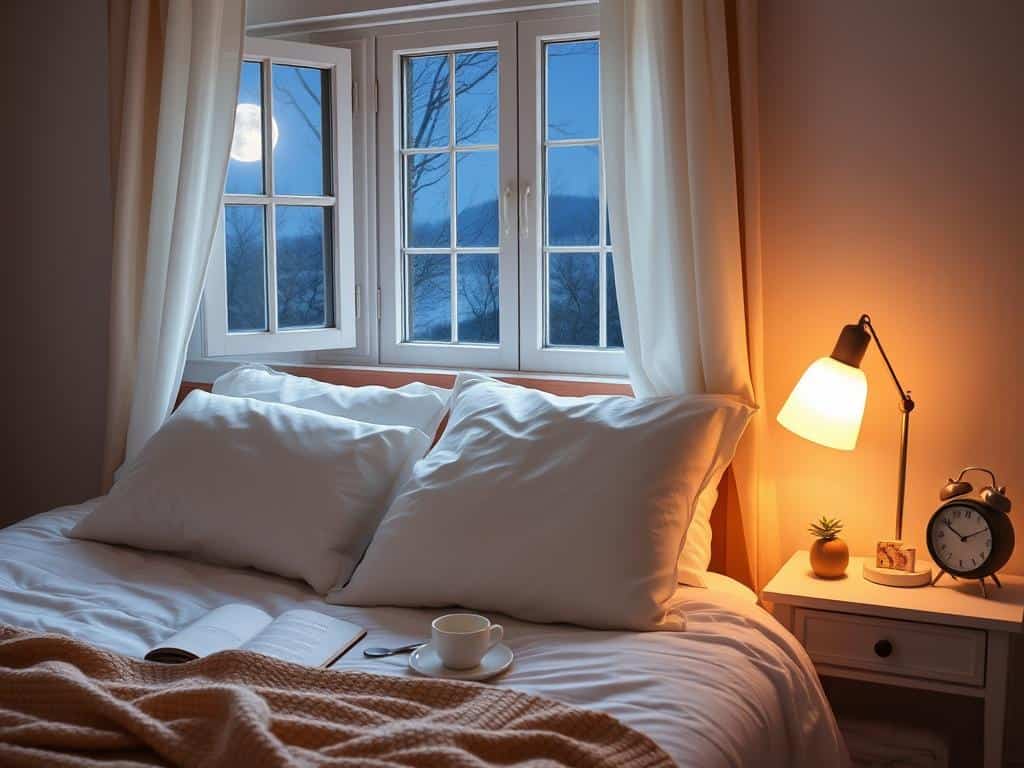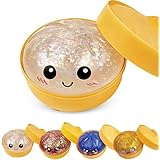13 Bedtime Routine Tricks for Peaceful Nights
Airbition Talking Flash Cards for Toddlers 1 2 3 4 Year Olds, Montessori Language Learning with 224 Words, Pocket Speech Therapy Tools, and Speech Development Educational Playthings for Children
$9.99 (as of March 5, 2026 04:26 GMT +00:00 - More infoProduct prices and availability are accurate as of the date/time indicated and are subject to change. Any price and availability information displayed on [relevant Amazon Site(s), as applicable] at the time of purchase will apply to the purchase of this product.)Schylling NeeDoh Nice Cube -Sensory Squeeze Toy with Super Solid Squish - 2.25" Cube
$25.00 (as of March 5, 2026 04:26 GMT +00:00 - More infoProduct prices and availability are accurate as of the date/time indicated and are subject to change. Any price and availability information displayed on [relevant Amazon Site(s), as applicable] at the time of purchase will apply to the purchase of this product.)Bright Starts Oball Easy-Grasp Rattle BPA-Free Infant Toy in Teal, Age Newborn and up, 4 Inches
$5.99 (as of March 5, 2026 04:26 GMT +00:00 - More infoProduct prices and availability are accurate as of the date/time indicated and are subject to change. Any price and availability information displayed on [relevant Amazon Site(s), as applicable] at the time of purchase will apply to the purchase of this product.)This post may contain affiliate links which means I may receive a commission for purchases made through links at no extra cost to you. I only recommend products I truly believe in. Thank you for your support!
I’ve struggled with sleep issues before. I learned how important a bedtime routine is for good sleep. The Centers for Disease Control and Prevention (CDC) says over 30 percent of adults in the U.S. have trouble sleeping. So, I’ve found some bedtime tricks that help me relax and sleep well.
A bedtime routine is a set of activities done 30-60 minutes before bed. It helps your body and mind get ready for sleep. It’s important to be consistent. Having a set bedtime and wake-up time, even on weekends, trains your brain to feel sleepy at the right time. Good routines include turning off screens, meditating, reading, or making your bedroom sleep-friendly.
Key Takeaways
- A consistent bedtime routine can train your brain to feel tired at your designated bedtime
- Effective routines may include turning off screens, meditating, reading, or adjusting the bedroom environment
- Avoiding caffeine and heavy meals close to bedtime can improve sleep quality
- Engaging in regular exercise during the day can lead to better sleep at night
- Incorporating relaxation techniques like deep breathing or progressive muscle relaxation can help you unwind before bed
The Importance of a Consistent Bedtime Routine
Having a set bedtime routine is key for our internal clock. It helps us sleep better and feel healthier. When we stick to a sleep schedule, our body gets in sync. This leads to better sleep and health.
Why Consistency Matters
Being consistent with our bedtime routine helps our internal clock. Going to bed and waking up at the same time every day trains our brain. It makes it easier to fall and stay asleep.
Benefits for Sleep Quality
- Faster sleep onset: A consistent bedtime routine helps the body recognize when it’s time to wind down, allowing you to fall asleep more quickly.
- Fewer nighttime awakenings: Maintaining a regular sleep schedule can reduce the likelihood of disruptive nighttime awakenings.
- Longer overall sleep duration: By keeping a consistent sleep-wake cycle, you’re more likely to get the recommended 7-9 hours of sleep per night.
A consistent bedtime routine is good for our internal clock. It makes us more alert during the day and improves our overall well-being. Keeping a regular sleep schedule, even on weekends, greatly improves our sleep and daily life.
Creating a Relaxing Sleep Environment
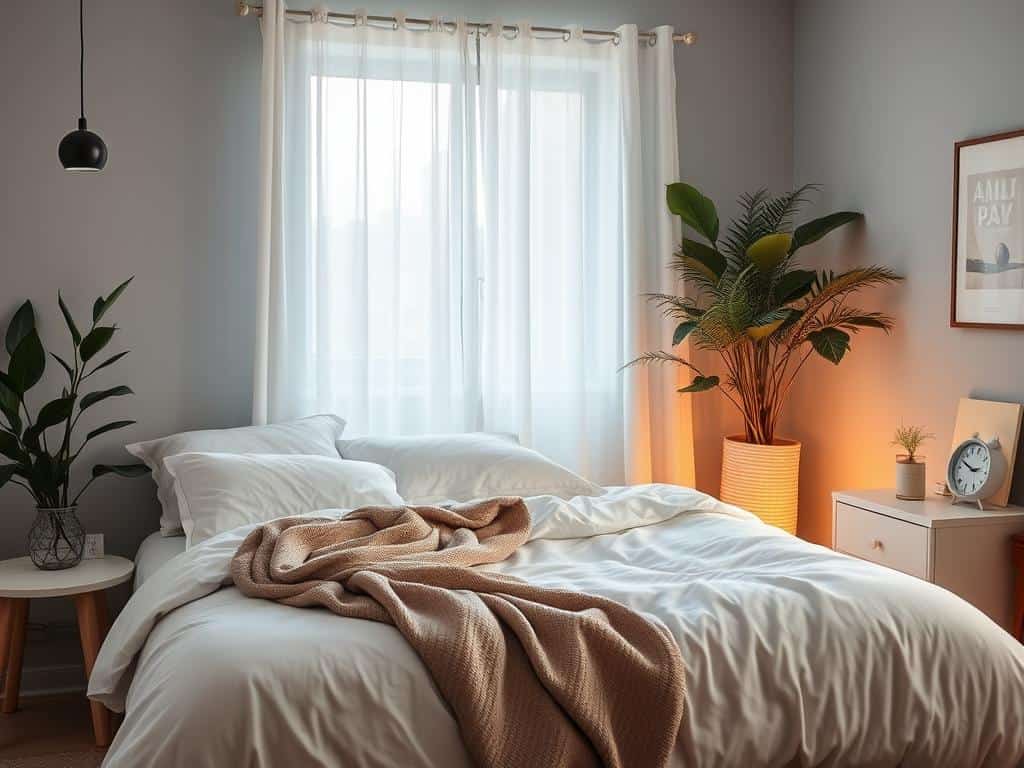
Making my bedroom perfect for sleep is key. I focus on the important parts of my room to help me sleep well. I choose the right lights and keep noise down to make a peaceful place.
Choosing the Right Lighting
Lighting is very important for sleep environment optimization. When it gets dark, I turn down the lights to help my body make melatonin. Blackout curtains or an eye mask keep out any outside light.
I use a soft, warm lamp or string lights. They make my room cozy and calm without being too bright.
Managing Noise and Distractions
To keep my room calm, I reduce noise. A white noise machine or earplugs block out loud sounds. This lets me sleep without being woken up.
I also keep my room tidy and avoid screens before bed. Adding calming scents like lavender makes my room even more relaxing. This helps me sleep better and feel refreshed in the morning.
By focusing on lighting, noise, and distractions, I make my bedroom a peaceful place. This approach helps me sleep well and wake up feeling great.
The Role of Technology in Sleep
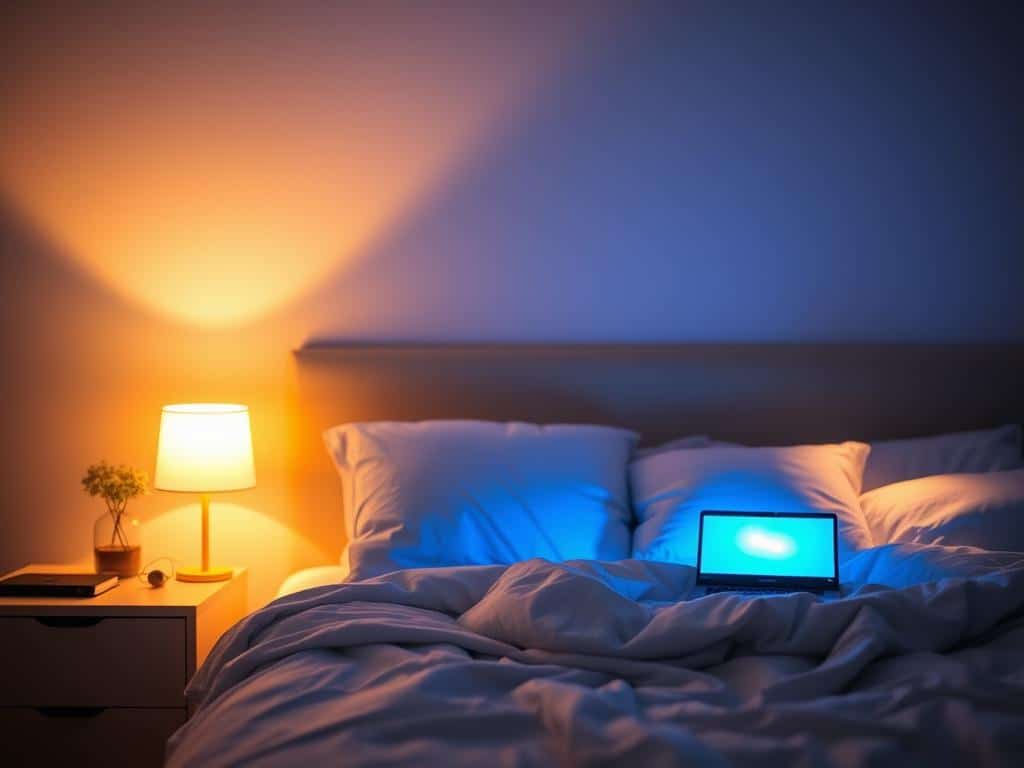
In our digital age, technology is a big part of our lives. It often messes with our sleep. The blue light from screens can hurt our sleep quality.
Looking at screens in the evening can make it hard to fall asleep. This is because blue light stops our body from making melatonin. Melatonin helps us sleep.
How Screens Affect Sleep Quality
Research shows that blue light from devices can mess with our sleep. It makes our brain think it’s still daytime. This makes it tough to get sleepy and fall asleep.
To fix this, we should turn off our devices an hour before bed. This helps our body relax and get ready for sleep.
Setting Limits on Device Use
- Avoid screens for at least 2 hours before bedtime
- Use blue light filters or night mode settings on devices to minimize exposure
- Keep phones and tablets out of the bedroom to create a tech-free sleep sanctuary
- Experiment with different sleep technologies, such as blue light blocking glasses or white noise machines, to find what works best for your individual sleep needs
By limiting our device use and making our sleep area tech-free, we can sleep better. The global sleep market has grown a lot, showing how important sleep technology is.
“Quality sleep is essential for our overall health and well-being. By being mindful of our technology use and creating a sleep-friendly environment, we can improve our sleep and wake up feeling refreshed and energized.”
Incorporating Relaxation Techniques

Adding relaxation techniques to your bedtime routine can really help your sleep. Deep breathing and progressive muscle relaxation are great. They calm your nervous system and help you relax. This makes you fall asleep faster and sleep better.
Deep Breathing Exercises
Deep breathing is a strong way to manage stress and relax. Try the 4-7-8 breathing method. Breathe in for 4 seconds, hold for 7, then breathe out for 8. Do this a few times, focusing on your breath.
This simple act can calm your nervous system. It helps reduce anxiety and makes you feel calm.
Progressive Muscle Relaxation
Progressive muscle relaxation is about tensing and then relaxing different muscles. Start with your toes, tense for a few seconds, then relax. Move up your body, relaxing each area as you go.
This method makes you aware of tension in your body. It helps you learn to release it. This prepares your body for deep relaxation and better sleep.
Using stress management, mindfulness practices, and relaxation methods before bed can greatly improve your sleep. Try different techniques to see what works for you. Make them a regular part of your bedtime routine.
The Power of Reading Before Bed

As the day ends, I love to read before bed. It’s a key part of my bedtime routine. It’s simple yet powerful.
Choosing the Right Genre
The type of book I read is important. I avoid exciting or emotional books. They can keep me awake.
Instead, I choose calming books. They help me relax and forget the day’s stress. Booksellers suggest fantasy and bedtime stories for kids to help them sleep.
How Reading Helps Me Unwind
Reading in a quiet place helps me relax. It slows my heart and relaxes my muscles. This tells my brain it’s time to sleep.
Studies show reading before bed improves sleep. People sleep better and wake up less often.
Reading also calms my mind. It stops me from thinking about stressful things. It helps me relax.
Reading before bed is key to my good sleep. It’s simple but very effective.
“Reading at bedtime has mental health benefits as it may calm the mind and prevent dwelling on stressful circumstances.”
Incorporating Aromatherapy
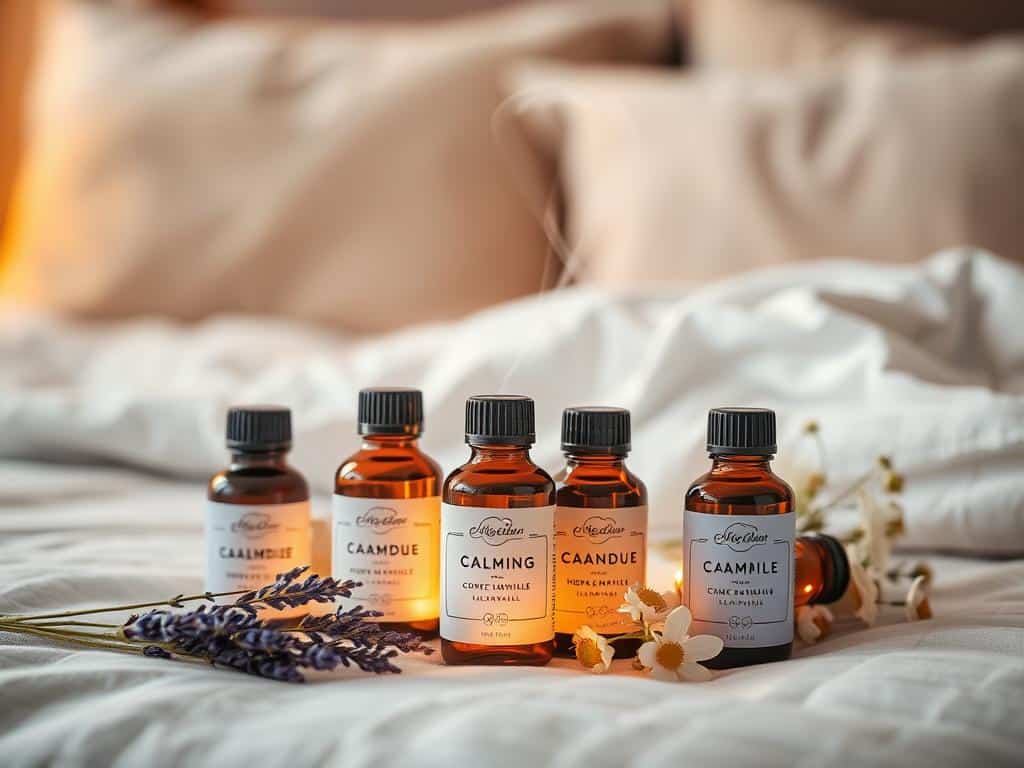
Aromatherapy can help you sleep better. It makes your room calm and helps you sleep deeper. Using sleep-promoting scents can relax you and make you sleep well.
Using Essential Oils
Essential oils like lavender and chamomile help you relax. Use a diffuser to spread these smells around. Or, add a few drops to your pillow or bathwater.
Try different scents to see what works for you. This way, you can find the best smells for your relaxation.
Creating a Calming Atmosphere
- Make a bedtime routine with aromatherapy. It tells your brain it’s time to relax.
- Use essential oils with deep breathing or meditation. This makes your relaxation better.
- Dim the lights and add a salt lamp or string lights. They make your room cozy and calm.
Adding aromatherapy to your bedtime routine can help you sleep better. Try different scents and methods to find what works for you.
“Aromatherapy has the ability to elicit emotional responses and promote relaxation, making it a valuable tool for improving sleep quality.”
The Impact of Diet on Sleep
Your diet is key to good sleep. Some foods help you sleep better, while others can keep you awake. It’s smart to eat sleep-friendly snacks and avoid foods that mess with your sleep.
Foods That Promote Sleep
Foods like turkey, salmon, and dairy boost melatonin, helping you sleep. Complex carbs, like whole grains, help by keeping blood sugar steady. Try a small bowl of oatmeal or whole-grain toast before bed for a good snack.
What to Avoid Before Bedtime
Avoid heavy, spicy, or fatty foods before bed. They can cause indigestion and keep you awake. Also, cut down on caffeine after 2 PM, as it can make it hard to sleep. Don’t drink alcohol close to bedtime, as it can mess with your sleep later.
By choosing the right foods and avoiding bad ones, you can sleep better. A little planning can make a big difference in your sleep. This way, you can wake up feeling refreshed and ready for the day.
“A good diet is an essential part of a healthy sleep routine. By choosing the right foods and avoiding disruptive ones, you can set the stage for a more restful and rejuvenating night’s sleep.”
Establishing a Prefatory Routine
As the sun sets, it’s time for my evening sleep prep. This routine helps me calm down after a busy day. I might stretch, write in my journal, or get ready for tomorrow.
Starting this routine 30 to 60 minutes before bed works best for me. Being consistent with timing and activities tells my body it’s time to sleep. I adjust as needed to meet my sleep needs.
Pre-Bed Activities that Work for Me
- Light stretching to release any lingering muscle tension
- Jotting down thoughts, reflections, or to-do’s for the following day
- Reviewing my calendar and setting out any items I’ll need for the next day
- Brewing a warm, soothing herbal tea to sip while I unwind
- Dimming the lights and creating a calming ambiance in my bedroom
Timing My Routine Effectively
Finding the right timing for my routine is key. I’ve tried different start times. Starting 30-60 minutes before bed works best for me.
This lets me slowly move from the day’s activities to a calm sleep state. The exact timing might change based on my sleep needs and schedule. But keeping it consistent helps my body prepare for good sleep.
Staying Hydrated Without Overdoing It
Good sleep hygiene is key for a restful night. Nighttime hydration is important, but too much can cause bathroom trips. Finding the right balance is crucial.
Understanding Fluid Intake
Start your day with 20 oz. of water for better hydration. The National Academy of Medicine says men need 125 ounces and women 91 ounces daily. Drink most of your water in the morning.
Best Practices for Hydration Before Bed
If you’re thirsty at night, drink small amounts. Stay away from caffeinated and alcoholic drinks, as they can mess with your sleep. Caffeine keeps you awake, and alcohol can disrupt sleep later.
Eat water-rich foods like cucumbers and watermelon to help with hydration. Keep your bedroom cool, around 65 degrees Fahrenheit, to help your body stay hydrated at night.
“Inadequate sleep can lead to increased water loss and higher levels of dehydration. Studies have shown that those who slept 6 hours or less per night had significantly higher rates of dehydration compared to those who regularly slept 8 hours or more.”
By managing your water intake and focusing on nighttime hydration, you can sleep better. These simple steps can greatly improve your sleep hygiene and health.
Listening to Soothing Music
As a psychologist, I’ve seen how music affects sleep. Calming music before bed helps people fall asleep faster. It also makes sleep better.
I have a bedtime playlist with over 56 hours of music. It includes tracks like “Somnium” and “Perpetual” by Robert Rich. These songs can last up to 8 hours.
The Power of Music Therapy
Music can relax us by calming our nervous system. It makes our breathing slower and our heart rate lower. It also lowers blood pressure.
Music also cuts down stress hormones. It makes us feel good by releasing dopamine. This can help us sleep better.
Studies say music with 60-80 beats per minute helps us relax. It matches our natural heart rate. This makes us sleep better.
Addressing Automatic Thoughts
Many people struggle with sleep because of their thoughts. Thoughts about loneliness or money worries can keep them awake. I use CBT to change these thoughts.
Using sleep sounds, audio relaxation, and music therapy helps a lot. It distracts from worries and helps people sleep better.
“Music has the power to transport us to a state of deep relaxation, where the mind and body can truly rest and rejuvenate. It’s a simple yet powerful tool in the quest for better sleep.”
Finding the right music is key. Experiment with different types to find what works for you. This way, you can sleep well and wake up feeling great.
The Benefit of Mindfulness and Meditation
As a busy American, I’ve found mindfulness and meditation great for sleep. Studies show 35-50% of adults worldwide have insomnia. In the U.S., up to 15% of adults have persistent insomnia.
Mindfulness meditation helps with sleep issues. A 2018 study found it improves sleep quality. It also changes our body’s chemistry to help us sleep better.
Simple Techniques to Practice
I love the body scan meditation. I relax each part of my body, from toes to head. Guided sleep meditations on mobile apps also help beginners like me.
By practicing these techniques, I sleep faster and better. It’s made a big difference in my sleep quality.
